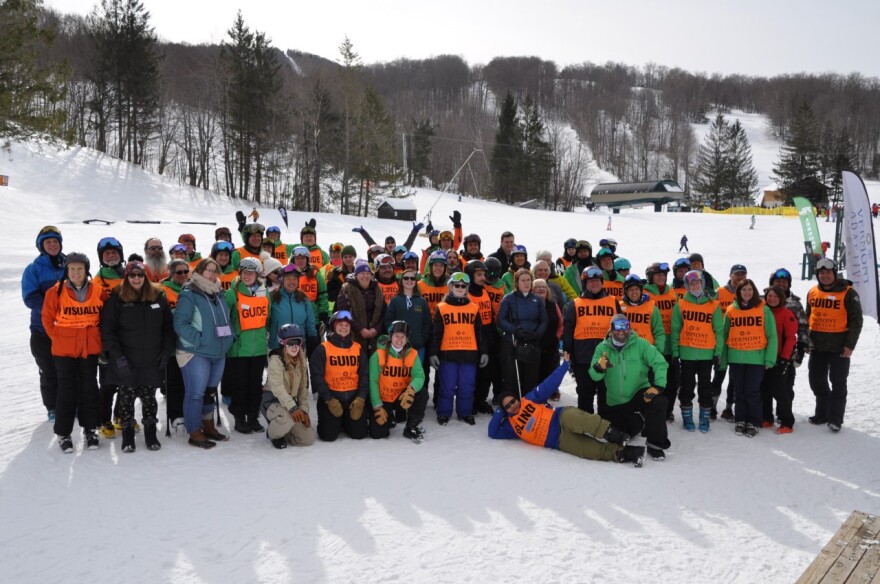Despite bitter cold temperatures this past weekend, skiers and snowboarders with visual impairments gathered at Pico Mountain to celebrate the United States Association of Blind Athletes Winter Festival.
This year marked the 14th annual blind skiing celebration at the mountain – and the first time the blind skiing celebration has been held since 2020.
The event was organized by the U.S. Association of Blind Athletes (USABA) in conjunction with Vermont Adaptive, an inclusive sports nonprofit.
Kim Jackson with Vermont Adaptive says the event is a powerful way to level the playing field for blind athletes.
“What we try to do as Vermont Adaptive is partner with national organizations like USABA, to be able to show our participants and our athletes that they can either do adaptive sports at a recreational level and enjoy it with family or friends, or if they really want to pursue a more competitive path, there are organizations that they can do that with,” Jackson says.
Jackson says guided skiing can look different for every participant depending on their level of vision and ski experience, and that Vermont Adaptive is equipped to meet the needs of each individual to ensure a safe and comfortable experience.
Some participants wear a radio headset and receive auditory guidance on where to turn and when to stop. Others prefer not to use the radio. Jackson says that typically, skiers require between two to five guides in total.
Roughly 20 athletes from all over the country participated in a weekend of guided skiing, community building and celebration. Even in the coldest temperatures, family, friends and community members gathered at the bottom of the mountain to cheer on participants.
Currently, Vermont is one of two states in the U.S. that offers this kind of celebration, alongside Colorado.
Marybai Huking is a sport program coordinator with the USABA. She says that in the future, she would love to see these festivals offered in more places.
“It is our job as these adaptive sport organizations to come up with those opportunities,” Huking says. “Because our athletes want to try things, you know, they want to have these opportunities and experiences and it really comes down to: how can we make this work for you?”
Huking says a great way for Vermonters to understand the experience of those with different disabilities is to get involved as a guide with Vermont Adaptive.
“People with vision in our case, you know with the visually impaired, can play a really cool role and end up loving that experience and getting to play that role. And also help an athlete get access to do something that they love,” she says.




